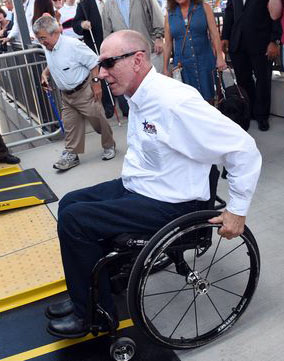Transportation Voucher Toolkit
What is the Toolkit for Operating a Rural Transportation Voucher Program?
The Toolkit for Operating a Rural Transportation Voucher Program provides a model that describes how to bring together community members and resources to develop and operate a transportation system for people with disabilities in rural areas. Transportation vouchers could be set up for riders to use for employment, non-emergency medical, daily living chores, and social activities.
In this model, eligible riders receive a voucher checkbook with an allocation of miles from a sponsoring agency. The agency negotiates with public and private transportation providers to accept the voucher checks as payment for rides, and can help riders organize potential volunteer drivers. Community members may volunteer to become drivers, and will be reimbursed up to the federal maximum rate for mileage reimbursement. In addition, other agencies that provide transportation, such as a council on aging or a developmental disability provider, can also be part of the voucher system.
The toolkit covers in detail the elements of operating a transportation voucher program, including how to develop partnerships and contract with transportation providers, how to identify funding, how to develop policies, program management, and other special considerations.
Toolkit Contents
- Toolkit for Operating a Rural Transportation Voucher Program | PDF; not screen-reader friendly
- TEXT_ONLY Toolkit for Operating a Rural Transportation Voucher Program | PDF text-only version, screen-reader friendly
- Transportation Funding information | accessible PDF
- Transportation Resources | accessible PDF
- Traveler’s Cheque Workbook | Excel file
Individualized training and technical assistance are available for a fee from Association of Programs for Rural Independent Living (APRIL). Please contact APRIL Executive Director Billy Altom at bwaltom@sbcglobal.net for more information.
RTC:Rural and APRIL Partnership

The Toolkit for Operating a Rural Transportation Voucher Program was developed through a partnership between the RTC:Rural and APRIL in response to the observed need for more transportation options in rural communities for people with disabilities.
By providing people with disabilities voucher checks to organize their own transportation needs, the model emphasizes the Independent Living philosophy of personal responsibility and control and opens opportunity for them to make choices about where they work and live. The voucher model also emphasizes utilizing existing community resources, and promotes cost sharing among service agencies, consumers, and transit providers.
